Minneapolis police chief: We may have to stop investigating property crimes
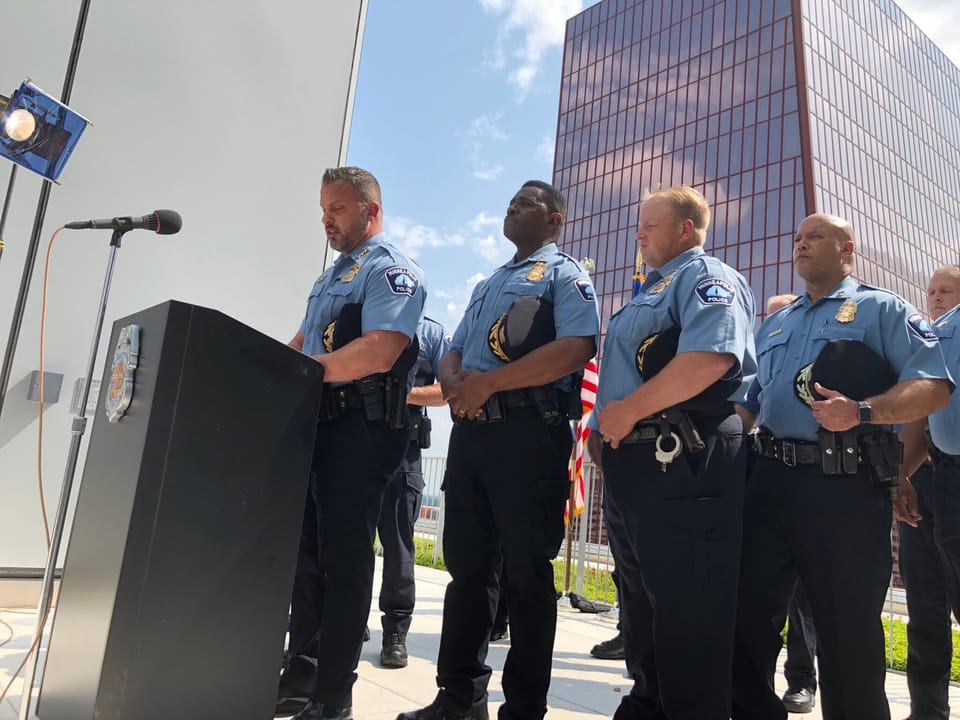
By Deena Winter, Minnesota Reformer
Minneapolis Police Chief Brian O’Hara has had a relatively successful tenure since arriving in December 2022, at least by the standards of the Minneapolis Police Department. Crime is down, none of his officers has been convicted of murder, and he still has the job, unlike former Community Safety Commissioner Cedric Alexander, who flamed out after just a year.
One major exception, as the Reformer reported: O’Hara signed off on the hiring of a Virginia officer who had been charged with (and later acquitted of) beating an unarmed Black man not long after George Floyd was murdered.
O’Hara, who has declined interviews with the Reformer, made news in Harper’s Magazine when he said his police department is so short-staffed it may have to stop investigating property crimes.
He also made revealing comments about how police were being trained before he arrived.
O’Hara was part of a panel convened by Harper’s to talk about the future of policing, along with the mayor of Newark — chosen because they’ve been credited with reducing violent crime. (Although most cities’ violent crime rates have gone down.) O’Hara was director of public safety in Newark before he arrived here.
While discussing why police kill so many Black men, O’Hara said, “I think a large problem, in Minneapolis, is West Coast–style police training. It’s not like how police officers are trained on the East Coast. It is dramatically different.”
How so?
“The problem is that there’s such a focus in training on being tactical and on officer safety that they’re approaching every situation like it’s a dangerous encounter. They’re not learning how to engage with people, especially people who are different from them, which is the root of the problem. It is a pretty difficult thing to try to change. I’ve been taking tools away from them. I’ve been changing their policies, telling them they can’t do this, they can’t do that. It’s difficult to keep shoving it down their throats, particularly when the city is just so insanely violent with guns right now.”
O’Hara talked about his experience getting training for his Minnesota peace officer’s license.
“I’ll never forget some of the stuff I saw when I first went there. There were posters, and they were all specific to Minneapolis. The images on them were unbelievable. One of them showed a cop being choked while his partner was also being choked at gunpoint. Another said something like how you train will affect how you perform in combat. Literally: combat was on two of these things.”
O’Hara then relayed the harrowing firearms training.
“I’m used to the New Jersey standard, where you just train to shoot center mass. In Minneapolis, they tell you, ‘Okay, next one the head.’ Why are we training people to shoot someone in the head?“
And then, the hobble restraint came up.
“There was this one maneuver that I got rid of when I became chief. It was an issue in the trial of Derek Chauvin, the officer who killed George Floyd. It was a restraint technique called the hobble. It’s inhumane. It is hog-tying a human being. I stood there looking on as they demonstrated it with one another at the academy. I thought it was a joke.”
O’Hara was also baffled by the widespread use of less-lethal weapons (sometimes called rubber bullets), which were at the center of the Jaleel Stallings case. (Police were out in an unmarked van shooting 40-mm rounds at everyone out after curfew in the days following Floyd’s murder; Stallings shot back, so police fractured his eye socket, and the fiasco cost the city another $1.5 million in a settlement and untold credibility with the public.)
“The Minneapolis police had a whole controversy in 2020, the riots, and again in 2021, with the 40mm, less-lethal rounds that they shoot,” O’Hara said. “The way their policy was written, any police officer could use a 40mm gun if they perceived any threat of bodily injury. But under the statute, that could be a paper cut.”
He also had a lot to say about city and state politics: “I’m still shocked by how extreme these ideologies are. Minneapolis is just one of a few blue dots in the middle of a rural red state. For some folks, hating the police has become a political cause. There’s still a very strong movement to defund the police, even in the middle of a five-alarm fire. In Minneapolis, 374 people were shot this year, which is outrageous. And we’re a police department that’s 40% smaller than it was a few years ago.”
O’Hara says homicides are down because police are being “incredibly precise, going after the people who are causing the most serious harm to the community.”
Homicides are down in most big cities. So doesn’t that mean MPD could probably get by with fewer officers? No, O’Hara said.
“The situation is not sustainable. When I say that the department is 40% smaller than it was at the start of 2020, that’s overall. Our investigations unit has shrunk by almost 50%. We might soon be in a situation where we’re just not going to investigate property crimes anymore. We might have to do that. And the community that will suffer the most is north Minneapolis.”
He goes on about north Minneapolis, saying, “People really, really want police protection. They just want good police officers. But then you have wealthier residents on the other side of town who are still screaming to get rid of us, even though the most that happens in their neighborhoods is change getting stolen out of their cars.”
Nick Halter of Axios pointed out that O’Hara’s assertion about wealthy neighborhoods was not borne out based on how those areas voted on the 2021 police charter amendment.
Minnesota Reformer is part of States Newsroom, a nonprofit news network supported by grants and a coalition of donors as a 501c(3) public charity. Minnesota Reformer maintains editorial independence. Contact Editor J. Patrick Coolican for questions: info@minnesotareformer.com. Follow Minnesota Reformer on Facebook and Twitter.
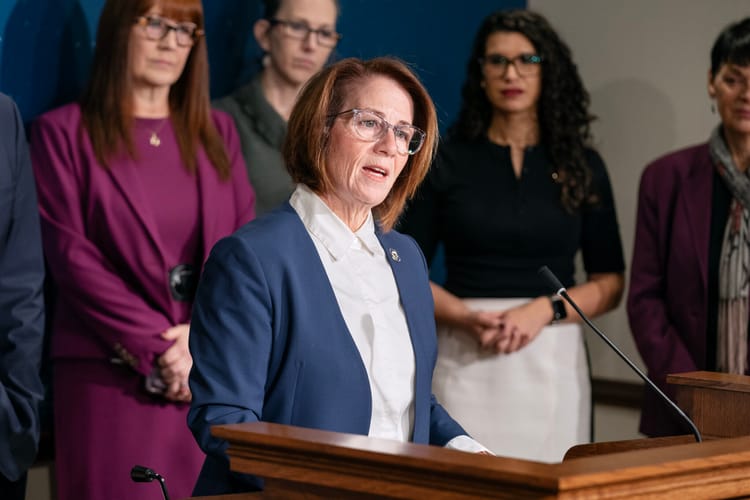
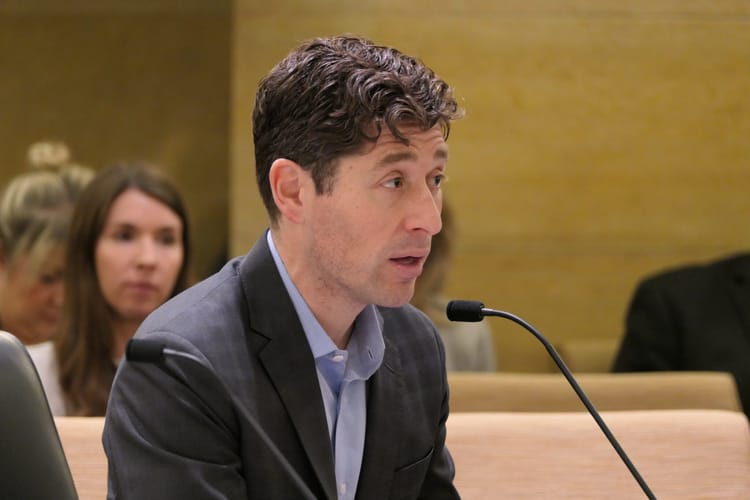
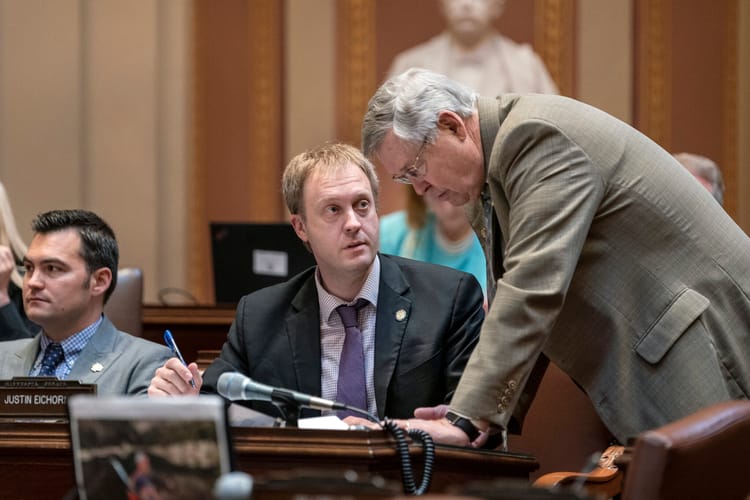
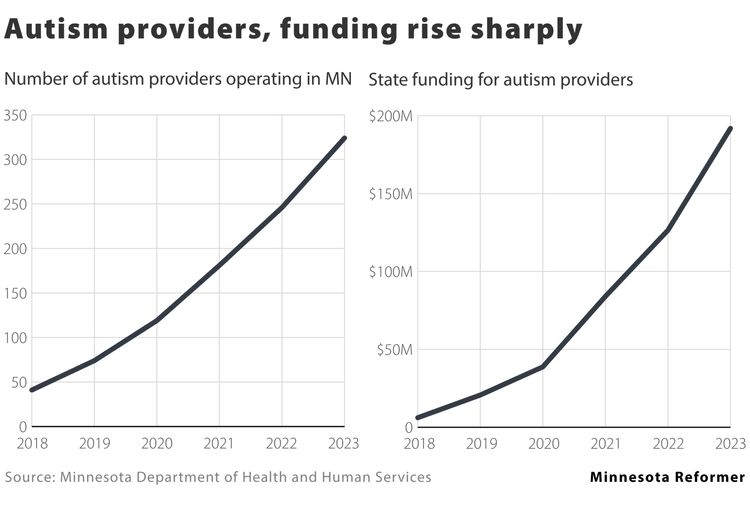

Member discussion